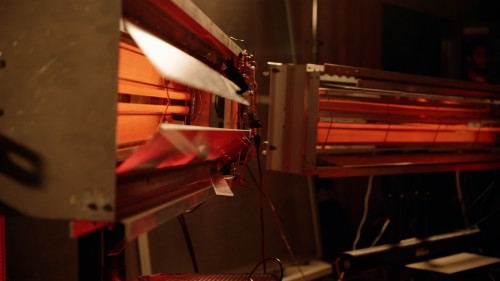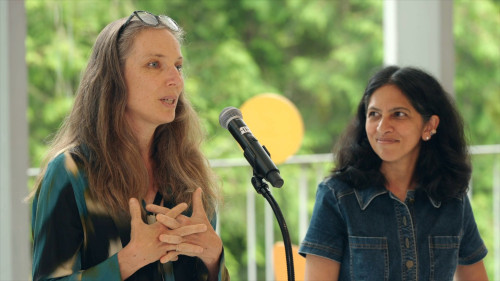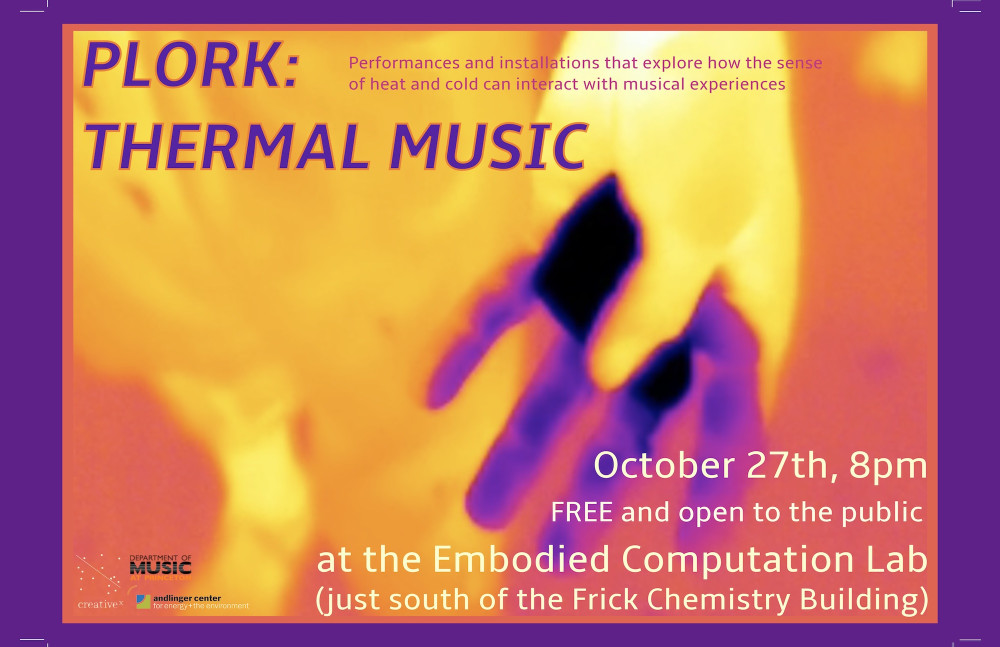I often find myself—and my ideas—lodged in some kind of “space between.” This is true of my dual-department appointment at Princeton and my involvement in creativeX projects, including work on “Thermal Music.” I’ve found my “space between” through creativeX. The meeting of engineering and the arts generates better avenues for teaching and disseminating technical concepts. Our collaboration has enormous potential to create solutions that address technical problems while adding experiential components that make the solutions stick when applied in the real world.
Forrest Meggers is a mechanical engineer whose research spans architecture and engineering. His work proposes novel and efficient solutions for common challenges in the built environment, such as heating and cooling buildings. His building system designs and integrations include radiant heating and cooling systems, desiccants and exergy air conditioning analysis, geothermal energy and seasonal energy storage, and thermodynamics and heat transfer.
Driven by a lifelong passion for “fixing broken things,” Forrest holds several patents. His smart sensor technology, which enhances thermostats, is developed and commercialized through his ventures, Aquaseek and CHAOSense. He works closely with industry and standards organizations to accelerate the adoption of these critical innovations.
Through creativeX, he has spearheaded unconventional collaborations, such as making music with heat. The creative experience of “Thermal Music” adds a new sensory layer to the music and exposes participants to more efficient and comfortable heating and cooling paradigms.
Forrest is an associate professor in the School of Architecture and the Andlinger Center for Energy and the Environment at Princeton University. He is the self-described “director of chaos”—also the name of his lab, Cooling and Heating for Architecturally Optimized Systems (CHAOS). Forrest and his research team investigate alternative models for temperature control systems to address their outsized role in climate change-causing emissions.


